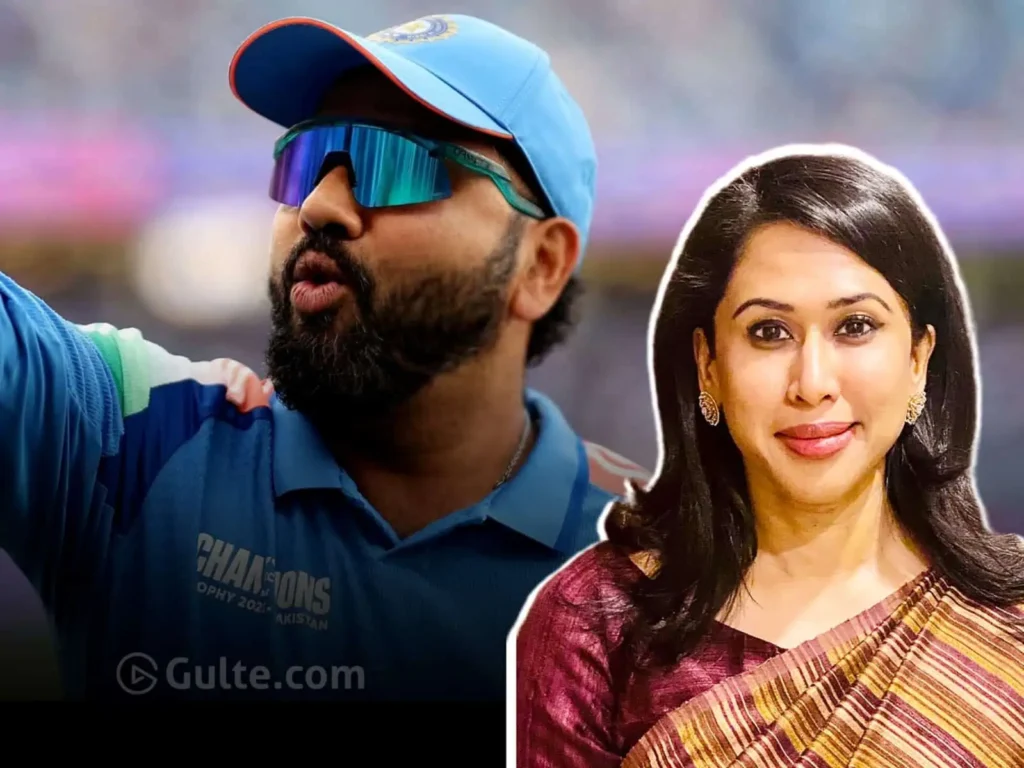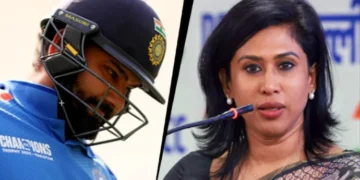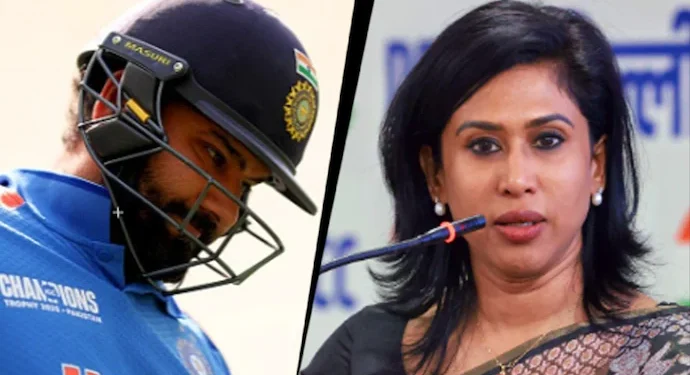Congress leader faces heavy backlash from cricket fans after making fat-shaming remarks about Indian skipper Rohit Sharma. Social media erupts in support of the cricketer, calling out the politician for body-shaming. Read more on the controversy and fan reactions.

Congress Leader Faces Backlash for Fat-Shaming Rohit Sharma
A Congress leader has landed in hot water after making derogatory remarks about Indian cricket captain Rohit Sharma’s physique. The comments, which quickly went viral on social media, sparked outrage among cricket fans and sports enthusiasts alike.
The Controversial Comment
The controversy began when the Congress leader, in a public statement, made an inappropriate remark about Rohit Sharma’s weight. The statement, perceived as body-shaming, did not sit well with fans, who took to social media to express their disapproval. Many accused the politician of making unnecessary and disrespectful comments about an athlete who has brought numerous accolades to Indian cricket.
Fans React Strongly
The backlash was swift, with #RespectRohit and #ShameOnCongress trending on X (formerly Twitter). Fans and sports personalities condemned the remark, highlighting that body-shaming, especially directed at a national icon, is unacceptable. Many pointed out that Rohit Sharma’s fitness and skills have made him one of the most successful cricketers in the world, and such comments only serve to spread negativity.
Political Fallout
The controversy has not only irked sports lovers but also led to political repercussions. BJP leaders and other political figures criticized the Congress leader, calling the remark an unnecessary and distasteful attack. Some even demanded an apology, stating that public figures should be more responsible with their words.
No Official Response from Rohit Sharma
As of now, Rohit Sharma has not officially responded to the controversy. The cricketer is currently focused on his preparations for upcoming matches, demonstrating his professionalism and dedication to the sport.
A Call for Sensitivity
This incident has reignited discussions on body positivity and the need for politicians and public figures to be mindful of their words. Fat-shaming, particularly in the world of sports, is widely criticized for being unnecessary and demotivating.
While the Congress leader has not yet issued an apology, the backlash serves as a strong reminder that personal remarks about an individual’s body have no place in professional or public discourse.
Conclusion Rohit Sharma remains one of India’s most celebrated cricketers, and such remarks do little to overshadow his achievements. As debates continue, the larger message remains clear—respect and sensitivity should always take precedence over thoughtless commentary.
Controversial Tweet Criticizing Rohit Sharma Sparks Debate During India vs New Zealand Match
A social media post by Ms. Mohamed, which was highly critical of Indian cricket captain Rohit Sharma, stirred controversy during yesterday’s India vs New Zealand match.
The tweet, which gained significant attention, stated: “Rohit Sharma is fat for a sportsman! Need to lose weight! And of course, the most unimpressive Captain India has ever had.”
The comment quickly went viral, drawing mixed reactions from cricket fans and analysts. While some agreed with the critique regarding Sharma’s fitness, others defended the cricketer, emphasizing his leadership skills and contributions to Indian cricket.
Rohit Sharma, known for his exceptional batting prowess and strategic mindset, has been a key figure in India’s cricketing success. His leadership in recent tournaments has been widely acknowledged, making the tweet a point of contention among supporters.
As the debate continues, the post highlights the growing influence of social media in shaping public opinions about sports personalities and the fine line between constructive criticism and personal attacks.
The following morning, she clarified that her remark was “generic” in nature and not directed at any specific individual or entity. She further expressed her concern, questioning how, in a democratic society, the fundamental right to free speech could be restricted.















 Categories
Categories










